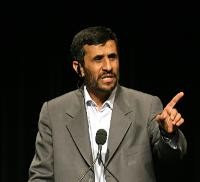President Barack Obama is under increasing public pressure to alter his strategy on Iran. Instead of diplomatic engagement with the current regime to end the nuclear stand-off, many feel he should encourage its collapse -- or at least its fundamental modification -- at the hands of the Green Movement. According to this line of reasoning, it makes no sense for Washington to negotiate with a government that might be on the verge of being overthrown altogether. The risk of the alternative approach, of course, is that Iran might cross the nuclear finish line before the regime has been forced to exit the scene.
Gambling on the shelf-life of another government as a foreign policy strategy can be a risky proposition. If the United States was able to normalize relations with the communist regime in Hanoi during the 1990s, despite all of the baggage of the Vietnam War and the vocal opposition of some within the exile community, it was because U.S. policymakers accepted the durability and legitimacy of the government, notwithstanding its human rights record. In contrast, efforts to nudge U.S.-Cuban relations forward foundered in the same period, in part due to the belief that, having lost the active support of his former Soviet patron, Fidel Castro was "on his last legs." Cutting a deal with Havana, it was argued, would only give him a new lease on life. Of course, Castro managed to survive long enough on his own to turn over power to his brother Raul in 2008.
Those in favor of waiting out the administration of Iranian President Mahmoud Ahmadinejad point to a series of popular revolutions that have brought down unpopular and/or authoritarian governments in the recent past: Serbia in 2000, Georgia in 2003, Ukraine in 2004 and Kyrgyzstan in 2005. But for every success during this time there were also failures. Popular movements failed to become color revolutions in Belarus, Azerbaijan and Moldova. The tactics that were successfully employed against Eduard Shevarnadze in 2003 in Georgia failed to dislodge Mikheil Saakashvili in 2007. Similarly, the student protests in Iran in 1999 failed to push the Islamic Republic toward reform.

